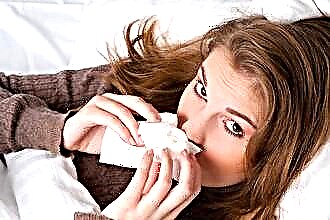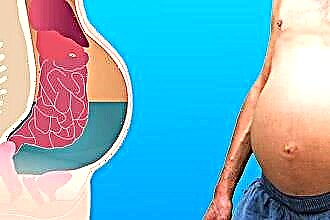At the beginning of the XIX century. German chemist F. Runge isolated caffeine, also known as theine or guaranine, the very substance that is found in the leaves of the tea bush, as well as in coffee beans. It is a psychostimulant that improves thinking, motivation, performance. Relieves fatigue and tones a person.
Theine is primarily a pharmacologically active substance, which also has side effects, the main of which is pain in the region of the heart. This is a consequence of pathophysiological processes. It is based on the accumulation of toxic substances that cause excitation of nerve endings.
How drinking tea or coffee provokes heart pain
There is a certain balance of enzymes in every cell of the heart. Theine's invasion of biochemical processes upsets the balance, causing inhibition of the activity of the enzyme phosphodiesterase, which destroys cAMP and cGMP, as a result of which the level of the latter increases and gives an effect similar to the action of adrenaline: heart palpitations, an increase in the force of contraction of the heart muscle.
Due to the inhibition of phosphodiesterase, the transport of calcium ions is impaired. Muscle fibers contract under their action, with an increase in calcium ions, spasm of the cardiac vessels is possible. Due to vasoconstriction (narrowing of the lumen of blood vessels), blood flow decreases, which leads to the accumulation of toxins that excite the nerve endings, and this is interpreted by us as "heart pain" or cardialgia.
Theine is mistakenly believed to increase blood pressure. Israeli scientists claim the opposite: during the experiment, they proved that the indicators increase by no more than 4-6 mm Hg. Art.
Based on the foregoing, they say that coffee hurts the heart. The pain is short-term, pressing, with low intensity, localized behind the sternum. With moderate consumption of the drink, the effect is positive, but a prolonged increase in guaranine in the blood leads to decompensation and exhaustion and, as a result, cardialgia with symptoms of irritability, insomnia and neurocirculatory dystonia.

The fact of the physiological peculiarity, consisting in increased sensitivity to theine, indicates that even a slight increase in this substance in the body leads to hyperesthesia. A similar situation is associated with a genetic predisposition, age or other morphological and functional characteristics of a person.
Sensitive individuals also react strongly to elevated levels of guaranine. In these individuals, an overdose of active substances is manifested by tachycardia or painful sensations in the region of the heart.
Action tactics and precautions
If you notice similar symptoms in yourself, follow this algorithm of actions:
- Stop drinking coffee... When complaints have appeared repeatedly, discard the etiological factor, or at least reduce the amount of the drink.
- Add milk or cream... They bind guaranine, which reduces its effect on the body.
- Eat more vegetables and fruits... They will enrich the body with vitamins and microelements, remove toxins by conjugating them. Berries of a dark color (blueberries, blackberries, currants) and replenish the vitamin reserve, and nourish the heart muscle, and increase the level of hemoglobin in the blood. And this improves the rheological characteristics, thinning the latter, which directly affects the detoxification process.
- If you feel pain in the heart after strong tea, which does not go away for a long period or causes bouts of fear, see a doctor... In this case, the drink plays the role of a marker, revealing hidden problems with the heart or autonomic nervous system. The doctor will carry out the necessary diagnostics and prescribe the appropriate treatment, which will help to quickly recover.
Remember, the heart is a pump that is regulated by both the endocrine and nervous systems. Therefore, keep them in good shape:
- go in for sports (if there are no contraindications), go for a walk;
- perform restorative procedures;
- positive emotions and a good mood will help people with a sensitive psyche;
- get rid of bad habits.
Conclusions
Drinking more than two cups of coffee or strong green tea every day is addictive. Systemically influencing, the active substances cause dizziness, malaise, weakness. Most cases of cardialgia after drinking these drinks are caused by auto-suggestive beliefs, so get rid of negative emotions and avoid chronic stress.
Hippocrates said: "Everything is a medicine, and everything is poison - the matter is in the dose."
As for patients with problems of the cardiovascular system, they should refuse to take drinks that contain theine. After all, if there is a problem, why aggravate it? Yes, coffee cannot boast of a strong pharmacological effect, but it prevents the lowering of blood pressure in hypertensive patients, which loads the left heart and causes pain in the myocardium.



